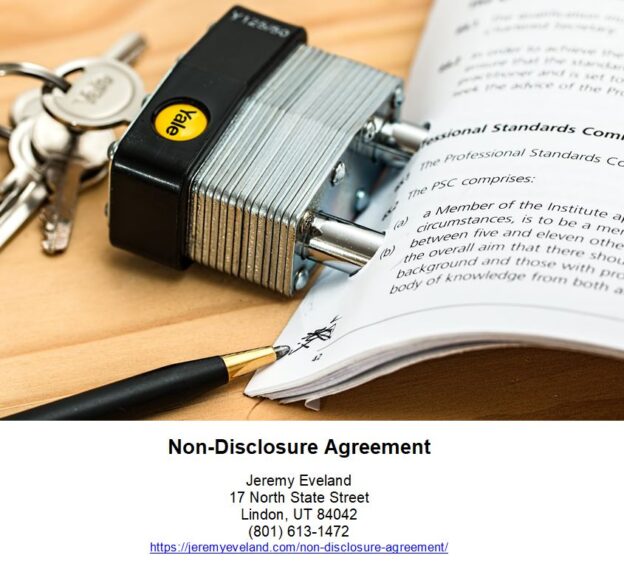In the world of business, protecting valuable information is crucial to maintaining a competitive advantage. Non-disclosure agreements, or NDAs, are legally binding contracts that ensure the confidentiality of sensitive business information. However, the effectiveness of these agreements relies heavily on proper training and compliance from employees. Failure to adhere to NDA training requirements can have severe consequences, including termination. In this article, we will explore the implications of non-compliance with NDA training, highlighting the importance of educating employees on the significance of confidentiality and providing businesses with guidelines on how to handle such situations.
Termination for Non-Disclosure Agreement Training Non-Compliance
In today’s competitive business environment, ensuring the protection of sensitive information and trade secrets is crucial to maintaining a company’s competitive edge. Non-disclosure agreements (NDAs) play a vital role in safeguarding confidential information, outlining the responsibilities of employees to maintain confidentiality, and setting forth the consequences of non-compliance. This article provides an overview of NDAs, emphasizes the importance of training on these agreements, explains the potential consequences of non-compliance, and delves into the process and legal requirements for termination as a result of non-compliance.

Overview of Non-Disclosure Agreements
Non-disclosure agreements, also known as confidentiality agreements, are legal contracts that establish a confidential relationship between parties, typically between an employer and an employee. These agreements protect proprietary information, trade secrets, customer lists, and other sensitive data from unauthorized disclosure or use. An NDA clearly defines what information is considered confidential and specifies how long the confidentiality obligations remain in effect.
Importance of Training on Non-Disclosure Agreements
Training employees on NDAs is essential to ensure that they understand their obligations and responsibilities regarding the protection of confidential information. Proper training enables employees to identify what constitutes confidential information, educates them on handling procedures, and reinforces the consequences of non-compliance. By investing in comprehensive training programs, businesses can reduce the likelihood of accidental or intentional breaches of confidentiality.
Consequences of Non-Disclosure Agreement Non-Compliance
Non-compliance with an NDA can have severe consequences for both the employee and the company. Breaching an NDA may result in reputational damage, loss of business opportunities, litigation expenses, and financial losses. Additionally, the disclosure of confidential information can undermine a company’s competitive advantage, jeopardize relationships with clients or business partners, and potentially lead to legal action.
Termination as a Result of Non-Compliance
Termination is one of the most significant consequences an employee may face for non-compliance with an NDA. Employers have the right to terminate an employee’s employment if that employee has violated the terms of the NDA. However, it is important to note that termination should be a reasonable response to the violation, taking into consideration the severity of the breach, the employee’s intent, and any mitigating factors.
Legal Requirements for Termination
When considering termination for non-compliance with an NDA, employers must ensure that they adhere to applicable legal requirements. These requirements may vary depending on jurisdiction, employment contracts, and any applicable collective bargaining agreements. Some legal considerations include providing prior notice of the intention to terminate, conducting a fair investigation into the alleged breach, and giving the employee an opportunity to provide their side of the story.
Process of Termination
The process of terminating an employee for non-compliance with an NDA typically includes several steps to ensure fairness and mitigate legal risks. Employers should begin by conducting a thorough investigation into the alleged breach, gathering all relevant evidence and speaking to any witnesses. If the investigation substantiates the violation, employers should provide the employee with written notice of the intent to terminate, clearly outlining the reasons for termination and providing an opportunity for the employee to respond. Finally, employers should follow any applicable laws or internal policies regarding termination procedures.

Employee Rights and Protections
Employees have certain rights and protections when facing termination for non-compliance with an NDA. It is important for employers to uphold these rights to avoid potential legal challenges. Employees have the right to be treated fairly, and termination should be based on legitimate reasons supported by evidence. Additionally, employees may be entitled to certain notice periods, severance packages, or other benefits as stipulated by applicable labor laws or employment contracts.
Potential Legal Liabilities for Non-Compliance
Non-compliance with an NDA can expose both employees and employers to potential legal liabilities. Employers may face claims for damages resulting from a breach of confidentiality, including economic losses, reputation damage, or unfair competition. Employees, on the other hand, may face legal action by their former employers seeking injunctions, financial compensation, or damages arising from the breach. It is crucial for businesses to take proactive measures to prevent non-compliance and protect themselves from potential legal repercussions.

Avoiding Non-Compliance and Termination
To avoid non-compliance and the potential termination that may follow, businesses should prioritize comprehensive training programs on NDAs. Employees should receive thorough instruction on their obligations, the importance of confidentiality, and the potential consequences of non-compliance. Regularly reviewing and updating NDAs to reflect changes in the business environment, technology, or legal requirements is also crucial. By fostering a culture of confidentiality and providing ongoing education, businesses can reduce the likelihood of non-compliance and create a strong foundation for protecting their valuable assets.
Frequently Asked Questions (FAQs)
Q: What should be included in a non-disclosure agreement?
A: A non-disclosure agreement should include a clear definition of confidential information, the duration of the agreement, the parties involved, the obligations of the recipient of the information, and any exclusions or limitations.
Q: Can an employer terminate an employee for a minor breach of a non-disclosure agreement?
A: The severity of the breach and any mitigating factors should be taken into consideration. Employers should act reasonably and proportionately when considering termination for non-compliance with an NDA.
Q: Can an employee be held personally liable for breaching a non-disclosure agreement?
A: Yes, an employee can be held personally liable for breaching an NDA. In addition to potential legal action by their employer, employees may face claims for damages resulting from the breach.
Q: How can employers ensure employees understand the importance of non-disclosure agreements?
A: Employers should invest in comprehensive training programs that educate employees about the importance of confidentiality, the potential consequences of non-compliance, and the proper handling of confidential information.
Q: Can a non-disclosure agreement be enforced against a former employee?
A: Yes, non-disclosure agreements can be enforced against former employees if the terms of the agreement are valid, reasonable, and the breach occurred during the agreement’s effective period.

